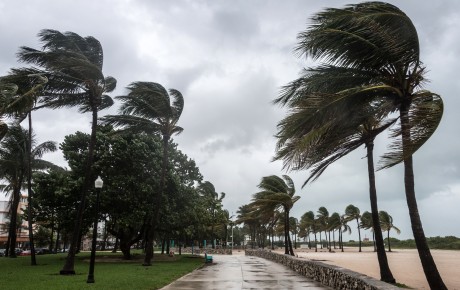
Solving the Florida homeowners’ insurance crisis
It’s “likely to get tougher before it gets easier” as the Florida insurance market responds to new legislation designed to tackle the availability and affordability of homeowners’ insurance
In March 2022, Florida’s insurer of last resort – Citizens Property Insurance – warned it was facing challenges “brought on by increased policy count, litigation and a continued weak private insurance market”. Restricted by law to lower rate increases than the private market, Citizens reported that in nine out of ten cases, its “rates are lower than comparable private policies” leading to a massive rise in demand for its products – law.com recently stated that Citizens had seen a 75% increase in the number of policies it has issued over the last two years.
For Citizens it’s an unsustainable position reflecting the steeply rising costs of litigation in the state that has dampened the appetite of the private insurance market to underwrite homeowners’ insurance, and ultimately could compromise the ability of homeowners to access affordable cover. To the ‘rescue’ comes a new set of insurance reforms aiming to reduce fraud and alleviate premium increases but questions remain as to whether they will have the required impact and, in the meantime, carriers continue to exit the market while homeowners battle with rising premiums.
Sticker shock for homeowners
According to Chris Hatt, Executive Vice President, Private Client Solutions for MarketScout, a specialty MGA headquartered in Dallas, Texas. “Homeowners in Florida are getting ‘sticker shock’ from the significant increases in the cost of their insurance, with some unable to get cover at all. It’s an incredible difficult marketplace to do business. We’ve seen a huge flight from the admitted market; our book has gone from two thirds admitted and one third non-admitted to two thirds non-admitted.”
Why the admitted market has been pulling out in Florida is down to several factors from the increased strength and frequency of storms, previous rate inadequacy and perhaps – most significantly – the litigation boom in the state. Last year, over 116,000 lawsuits were filed against Florida property insurers while the next highest number filed for any other state was 900.
According to the Office of Insurance Regulation, Florida made up over three quarters (79%) of US homeowners’ insurance lawsuits over claims made, even though it represents less than a tenth (9%) of the entire nation’s homeowners’ insurance claims. “One of the issues with Florida,” says Hatt, “and more so than any other state, are the ‘fraudulent claims’. Examples include unlicensed roofing contractors going house to house and telling homeowners their roof looks like it has suffered storm damage, with the homeowner then signing over their rights to the contractor to make a claim for repairs.”
The effect of these claims then feeds through the entire chain, with reinsurers no longer prepared to pick up the final cost says Hiscox’s Alex Kickham. Household Line Underwriter: “2023 will be harder than 2022 because the reinsurance impact is starting to come through. Lots of treaty renewals went through on the 1 June and the rate increases were very high while many towers of reinsurance weren’t placed at all – Citizens bought less reinsurance for example – and those dynamics will continue well in to 2023.”
"2023 will be harder than 2022 because the reinsurance impact is starting to come through" says Kickham.
Florida responds with new legislation
As a consequence of these fundamental problems, Florida’s legislature has responded with new legislation signed into law on the 26 May 2022. Its aims include a US$2 billion Reinsurance to Assist Policyholders programme to help affordability for policyholders; a focus on fraud prevention with measures such as eliminating attorney fees in assignment of benefits (AOB) claims; and protecting policyholders from non-renewal of their policy through new roof underwriting requirements. Signing the legislation, Florida’s Governor Ron DeSantis labelled the package, “the most significant reforms to Florida’s homeowners insurance market in a generation”.
“A lot of the changes you’re seeing are trying to protect insurers from frivolous claims and protecting insurers’ bottom line,” says Brian Voorhees Head of Underwriting for Personalised Programs at managing general agency Rivington Partners, a subsidiary of Applied Underwriters. “There is a perceived notion of these changes being more carrier friendly [than for the insured] and quite frankly they have to be. The underwriting strategy with regard to roofs and assignment of benefits might seem like it restricts consumer rights, for example, but it all works towards improving the competitiveness of the marketplace and to ensuring there are competitors.”
“A lot of the changes you’re seeing are trying to protect insurers from frivolous claims and protecting insurers’ bottom line,” says Voorhees.
Whether the legislation will do the trick remains to be seen adds Hatt. “This bill will hopefully help address fraudulent claims but it will take time to work through. Its effectiveness will depend on how successfully it is challenged. If it’s able to be enforced, then it’s a good solid, starting point. But whether it’s enough remains to be seen given so much capacity has stepped away.” A view echoed by Voorhees: “Critical to the success of the legislation is ensuring homeowners’ awareness of the issues and “making the changes needed that are meaningful and impactful from an affordability perspective. I’m enthused by the changes I’ve seen but whether they will have a true impact on bottom line is not yet known.”
Certainty is needed
In the meantime, says Hiscox’s Kickham, the biggest issue is the swirling uncertainty. “The admitted market won’t return until they can see certainty. The legislation has already been challenged in court so we won’t know for some time if the new measures will work.” Hatt agrees, adding; “Any new capacity that comes to the Florida market will be used up very quickly. It’s going to get tougher before it gets easier.”



